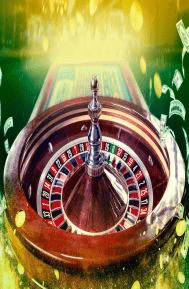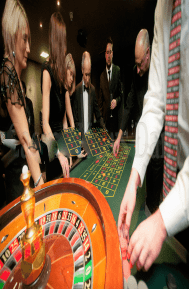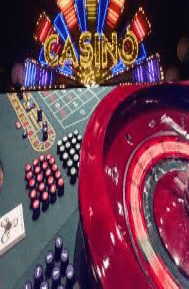A Short Account of the History of Roulette

When exploring the origins and the history of roulette, it's safe to say that it all began over 5,500 thousand years ago with the invention of the wheel. Fast forward a couple of thousand years and there is evidence that Roman soldiers played games involving spinning their shields or even a chariot wheel and betting on the outcome. But as far as real roulette goes that's where the Romans must leave the table. To get a clearer picture of the history of roulette we must jump into a more modern era.
A game of chance invented by chance
If Frenchman Blaise Pascal (1623-1662) had a LinkedIn account, he'd probably need two profiles to list his many interests and achievements: mathematician, physicist, philosopher, theologian, writer, probability theorist, inventor. In 1655 while trying to invent a perpetual motion machine, this talented multi-tasker inadvertently invented the roulette wheel, which means "little wheel" in French.
His discovery is usually cited as the true origin of roulette, but other similar games involving a spinning wheel and a ball also existed in Europe, including roly poly and biribi. The game even-odd had winning pockets marked with an E or an O and a few empty slots where the ball could fall through, resulting in a lost bet.
History of Roulette - Partie Deux

The early roulette wheel consisted of 38 numbers: 1-36 plus a zero slot and a double zero slot. Players placed bets where they hoped the ball would land and if they were successful, they won. If the ball landed in either of the zero pockets, then the house took all the money, giving a house edge of 2/38 or 5.26%.
In the 1840s, French twins Francois and Louis Blanc redesigned the wheel to contain just one zero and 37 numbers, thus reducing the house advantage to 1/37 or 2.7%. They took their new wheel to Homburg, Germany and soon the popularity of this version spread across Europe. Today this is known as European Roulette. A few decades later the brothers Blanc were involved in the first Monte Carlo Casino.
The 1800s - WWW spreads through America

French immigrants introduced roulette to the Americas in the 18th and 19th centuries and New Orleans became a popular gambling centre. Here, the original 38 numbers with two zero pockets and the 5.2% house edge was the favoured variety. Today this is known as American Roulette. As the continent expanded so did the fascination with betting games like roulette, and soon Wagering, Womanising and Whiskey became the order of the day in gambling houses, saloon bars and riverboats.
Online Roulette
The evolution of the Word Wide Web and the growth in online gambling has brought the history of roulette full circle. You no longer need to don a feather boa or polish your best boots to enjoy the thrill of the roulette table. Nowadays, online casinos offer several versions of this iconic game and most operators have live dealers, providing you with the sophisticated ambience of a real brick-and-mortar establishment. You can access online roulette from your PC, smartphone or tablet, so if you too are a multi-tasker like Pascal, you can always take a break and log in anytime, anywhere for a few quick spins.


